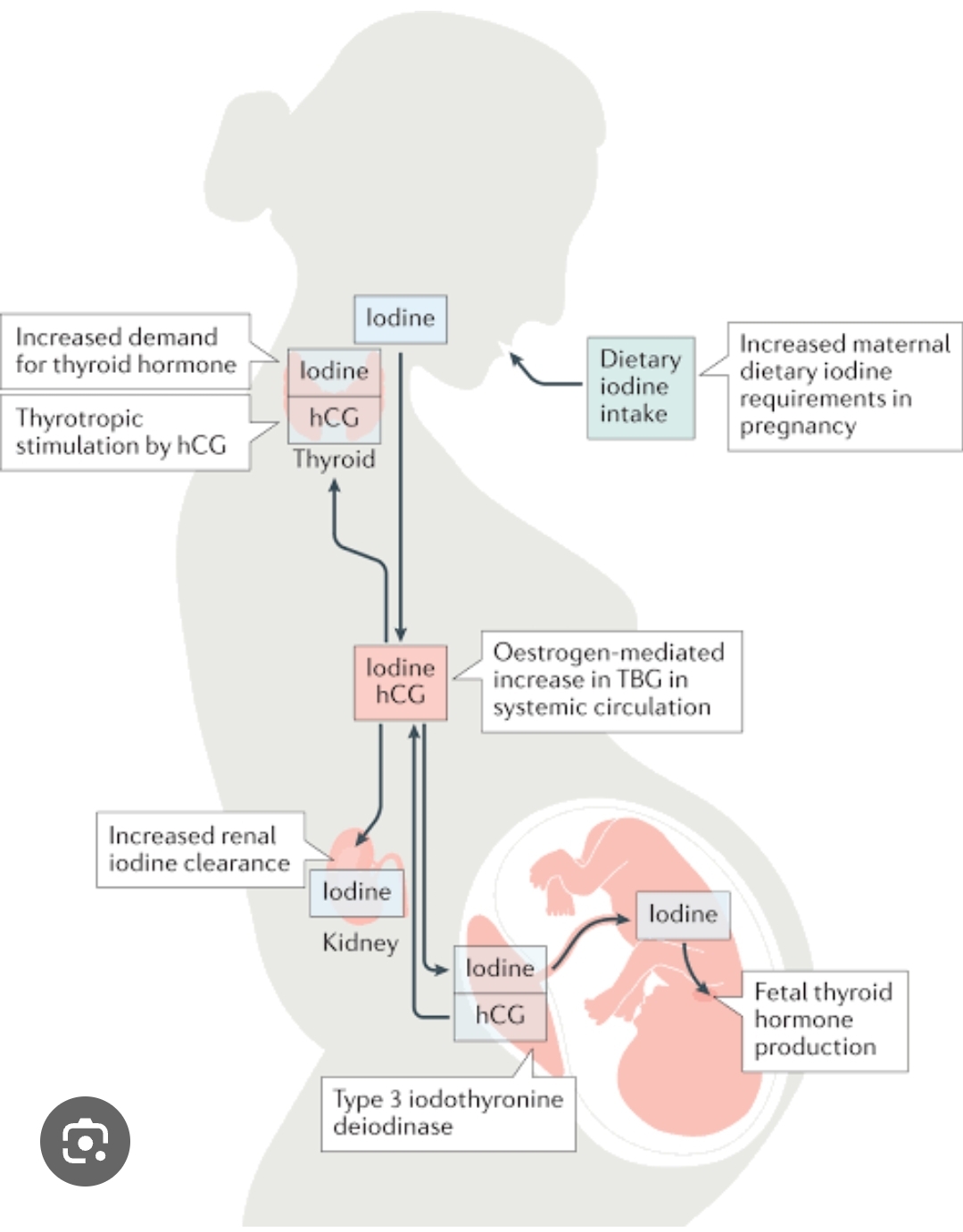
Thyroid disorders during pregnancy can have significant implications for both the mother and the developing baby. The thyroid gland produces hormones that regulate metabolism and play a key role in the development of the baby’s brain and nervous system, especially in the first trimester when the fetus is most dependent on the mother's thyroid hormones. Here's a look at how thyroid disorders affect pregnancy:
1. Hypothyroidism (underactive thyroid)
Maternal Risks: Hypothyroidism can lead to fatigue, weight gain, depression, and difficulty in maintaining a normal pregnancy. It may also increase the risk of pregnancy complications like preeclampsia, gestational diabetes, and anemia.
Fetal Risks: Untreated hypothyroidism in the mother increases the risk of preterm birth, low birth weight, developmental delays, and cognitive impairment in the child.
Management: Treatment typically involves thyroid hormone replacement (levothyroxine) to normalize thyroid levels.
2. Hyperthyroidism (overactive thyroid)
Maternal Risks: Hyperthyroidism can lead to symptoms like weight loss, rapid heartbeat, and irritability. Severe hyperthyroidism can increase the risk of preterm labor, miscarriage, and high blood pressure during pregnancy.
Fetal Risks: Hyperthyroidism may lead to fetal growth restriction, preterm birth, and thyroid problems in the newborn, such as neonatal hyperthyroidism.
Management: Treatment may include antithyroid medications, and in some cases, beta-blockers or radioactive iodine therapy (though this is avoided during pregnancy).
3. Postpartum Thyroiditis
Some women may develop thyroiditis (inflammation of the thyroid) after childbirth, which can cause either hyperthyroidism or hypothyroidism. This can affect the mother’s mood, energy levels, and overall health.
4. Gestational Thyroid Disease
Gestational Hyperthyroidism: This is a temporary condition that may occur during pregnancy and is usually related to the placenta producing higher amounts of thyroid hormone. It generally resolves after delivery.
Gestational Hypothyroidism: Some women may experience a temporary decrease in thyroid function during pregnancy, which is usually treated with levothyroxine.
Monitoring and Treatment
Regular monitoring of thyroid function through blood tests is recommended for pregnant women, especially those with a history of thyroid disease.
Maintaining normal thyroid hormone levels during pregnancy is crucial for the health of both the mother and the baby.
Overall, proper management of thyroid disorders during pregnancy can help reduce the risks of complications and ensure a healthy outcome for both mother and child




